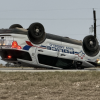Howdy
h1>
5 Use Cases Police Drones
Can Your Home Handle a Smart Sauna
Thinking of installing a sauna at home? Good for you; longevity scientists would approve. As for your bank account… it depends.
If you hit a public sauna weekly to reap all those health benefits, annual costs add up. In that case, a home unit would make perfect sense. Sure, it’s an investment up front, but it can absolutely be cheaper per session over time (especially if you use it several times per week).
But can your home actually handle a smart sauna? Here’s everything you need to install one, from dedicated circuits to GFCI requirements and more.
Picking The Right Unit For Your Space
How much space can you spare for the sauna? Even if you think you have plenty, make sure you check everything. Floor load, ceiling height, venting, and where the door swings; you need enough space for all of this.
When it comes to unit type, traditional electric heaters need more clearance and power, while infrared cabins or pods can work in tighter spots. They also often reach full temperature with lower electrical demand. Which one is right for you will, therefore, depend on how much square footage you can dedicate, how often you plan to use it, and whether you want faster heat or a lower-temp infrared session.
If you want a feature-rich, research-focused option, High Tech Health’s Transcend Smart Sauna fits that “tech-forward but medically informed” lane. It “combines state-of-the-art heater technology with innovations that make achieving the greatest results easier than ever. With technology that personalizes your sauna experience, like the revolutionary Sauna Fitness™ indicator, and the research-driven Sauna Guide™ calendar, your wellness routine will be optimized in a way never before possible.” For specs and buying info, click here.
Power Needs And Installation Considerations
Once you know the footprint, match the electrical plan to your chosen unit.
For example, if you get a 240 V heater, it's usually pulling 30–60 amps so it would need a dedicated breaker, properly sized cable, and an exterior disconnect if your locality requires it. Smaller infrared models might run on 120 V, but a licensed electrician still needs to verify circuit capacity and GFCI requirements. Code varies widely, and manufacturer manuals aren’t optional reading.
About GFCI: rules vary by code cycle and locality. Some jurisdictions extend GFCI protection to higher-voltage receptacles or specific damp locations; manufacturers sometimes caution against GFCIs on certain sauna heaters because of nuisance tripping. You probably won't need to do high-voltage (hipot) testing, but the electrician should absolutely verify the electrical connections and proper voltage supply.
The bottom line: follow the sauna manufacturer’s installation manual and get a licensed electrician who knows your local NEC adoption.
Smart Features, Wi-Fi, And Privacy
If you choose a connected model, place it on a guest or IoT network, disable anything you don’t use, and check for firmware updates monthly.
Smart scheduling can also help you preheat during off-peak electricity windows; it's a small change but it can cut operating costs noticeably if you use the sauna multiple times a week.
Scheduling, Rate Windows, And Daily Use
Utilities usually publish their peak-rate periods, and those hours can be surprisingly expensive depending on your region. But if you get a smart sauna, you can program its warmup to start just after off-peak begins. This will help you avoid rate spikes and also lower strain on the rest of your home’s electrical load, especially if you run HVAC or major appliances in the same window.
Final sizing and workflow notes
If either space or amperage capacity is tight, scale the sauna down instead of stretching the installation. A smaller infrared cabin or a one-person unit still provides the physiologic benefits without oversized wiring or subpanel upgrades.
And whatever unit you choose, keep ventilation, clearances, and breaker labeling clean and compliant.



